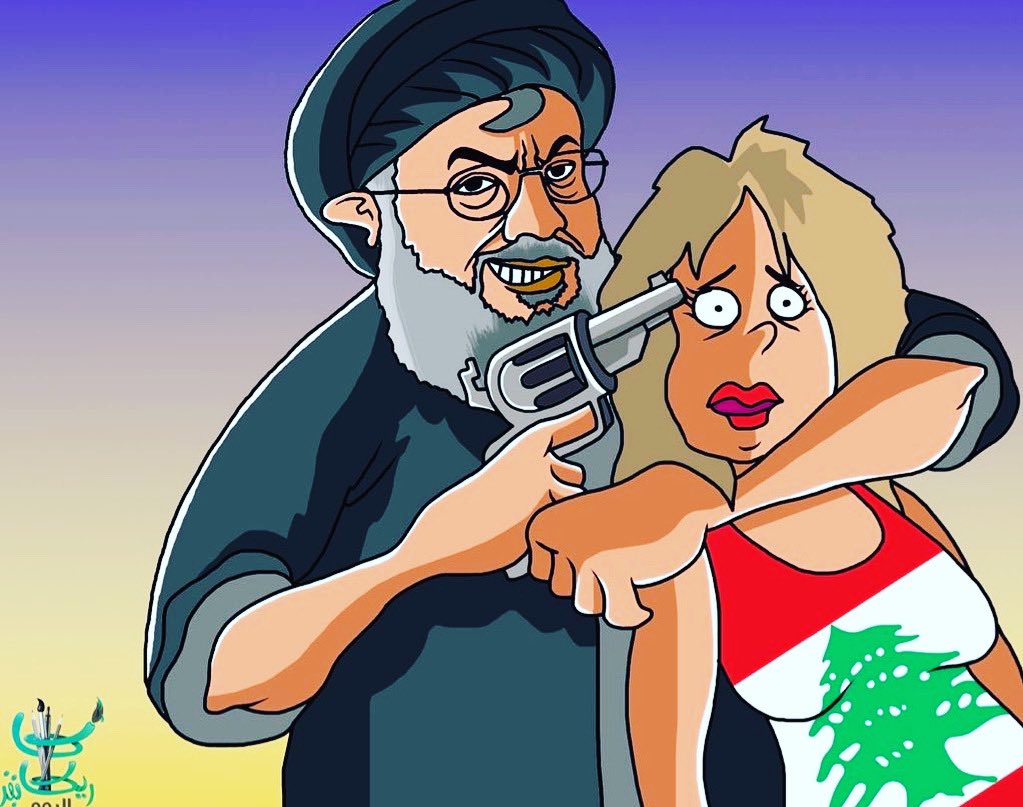Hezbollah is losing its ability to intimidate anyone
Michael Young/The National/October 07/2020
مايكل يونغ/ذي ناشيونال: حزب الله يفقد قدرته على ترهيب أي شخص
*The party’s strength was always its ability to impose its agenda on its compatriots, and to threaten those who opposed it. But today, Hezbollah knows that such methods will not work.
***
Amid Lebanon’s economic chaos and popular despair, there is little patience left for the group’s ‘resistance’ ideology.
Last week, Lebanon’s Speaker of Parliament, Nabih Berri, announced that an agreement had been reached on a framework for negotiations with Israel to delineate the two nations’ maritime boundaries. The agreement, mediated by the US, could allow them to resolve their dispute over offshore gas fields in the Mediterranean.
Mr Berri is a close ally of the militant political party Hezbollah, and the fact that he approved of the framework suggested the party had given him the go-ahead to do so.
But it didn’t make the decision any less remarkable. By agreeing to indirect negotiations, Hezbollah implicitly acknowledged that a compromise could be reached when it had argued that Lebanon’s rights to its offshore gas were inviolable.
That prior insistence meant, in principle, that there was nothing over which to compromise.
Stark reality, however, has trumped ideology. Lebanon is going through a terrible economic crisis, exacerbated by the resistance of the country’s politicians and parties to introducing reforms that would unlock financial aid from the International Monetary Fund. Such reforms would threaten their networks of corruption and patronage.
That is why the prospect of offshore gas reserves represents a valuable lifeline for them, especially when Hezbollah’s and Mr Berri’s supporters are increasingly unhappy with Lebanon’s economic situation.
Hezbollah’s acceptance of negotiations between Lebanon and Israel has raised profound questions, too. First, if Lebanon looks to natural gas as an economic lifesaver, this could create dynamics that impose quiet collaboration with Israel – something Hezbollah officially claims to be a nonstarter. But things may not be so simple.
For instance, both countries will need to find a means of exporting natural gas so that the price remains competitive internationally. That means that Israel and Lebanon, along with Cyprus, would benefit from investing in a shared export infrastructure, thereby reducing costs. Lebanon would have an economic incentive to feed its gas into the EastMed Pipeline that those countries, together with Greece, plan to complete by 2025, and which aims to transport natural gas to Italy.
The Lebanese continue to claim that they would not allow their gas to be exported in the same pipeline as Israeli gas. Should Beirut seek to collaborate with the Israelis in exploiting the gas fields, this would put Lebanese officials in a particularly awkward position – claiming that gas has a nationality when it is being exported, but not when it is being extracted.
Competing with the EastMed Pipeline is the Trans-Anatolian Pipeline, which crosses much of Turkey and also reaches Europe.
It could represent an alternative path for Lebanese gas. But taking a circuitous route that cuts across northern Anatolia instead of one that is already being planned with two of Lebanon’s maritime neighbours would be an odd – and very expensive – move.
In other words, should Lebanon want to enter the gas game on the best economic terms, dealing with Israel may be the most sensible option.
If financial realities are forcing Hezbollah to reconsider Lebanon’s negotiations with Israel over maritime boundaries, then the country’s economic collapse is having more pernicious implications for the party. Hezbollah’s missile arsenal is there as a deterrent to protect Iran and its nuclear programme from Israeli attacks. Yet to what extent is that even conceivable today?
With over 50 per cent of the Lebanese living under the poverty line, and many of them believing Hezbollah to be part of the corrupt political elite, a war with Israel could turn the population decisively against the party.
Worse, Lebanon would be so devastated that the very idea of Hezbollah’s “resistance” could be permanently discredited, with the party blamed for acting primarily to benefit Iran instead of Lebanon.
The recent explosion in a Hezbollah arms cache in Ayn Qana in southern Lebanon has led to speculation that it was caused by a surreptitious Israeli military operation. This needs to be confirmed, but people in the south reportedly believe stories of Israeli involvement, and think that Hezbollah declined to react because the party could not afford a conflict with Israel now.
If Hezbollah is unable to retaliate against Israeli or American strikes on Iran because of the domestic repercussions, and if it looks the other way while Lebanon undertakes negotiations Israel, then of what value is its contract with Tehran?
The party’s strength was always its ability to impose its agenda on its compatriots, and to threaten those who opposed it. But today, Hezbollah knows that such methods will not work.
That doesn’t meant that Tehran has any intention of giving up on the party. Hezbollah serves many roles besides that of a deterrent against Israel. It is a valuable instrument of Tehran’s influence on the Mediterranean. But it’s also true that Hezbollah’s disregard for the discontent in Lebanon, along with its refusal to help revive the country through economic reform, has meant that it has poisoned its own environment, limiting its margin of manoeuvre on Iran’s behalf.
Iran’s expansion in the Arab world has produced results, but also destruction.
Tehran has played on the contradictions in places like Iraq, Yemen, Syria, the Palestinian Territories, and Lebanon in order to advance.
But its legacy is fields of ruin. Today, Hezbollah is paying the price for this at home. The party has taken an inflexible position in preserving the mendacious Lebanese political class, thereby collapsing the consensus that had once protected it.
*Michael Young is a senior editor at the Carnegie Middle East Centre in Beirut and a columnist for The National




















